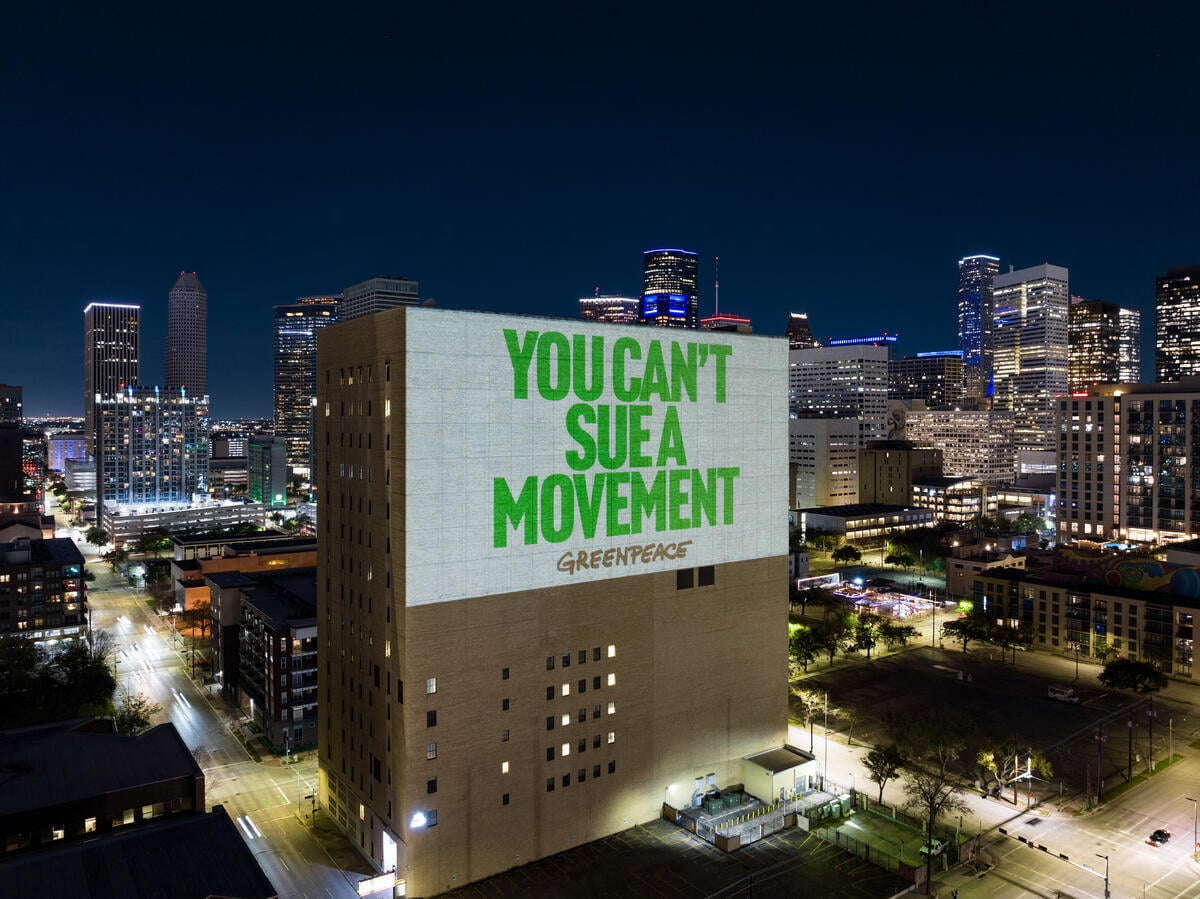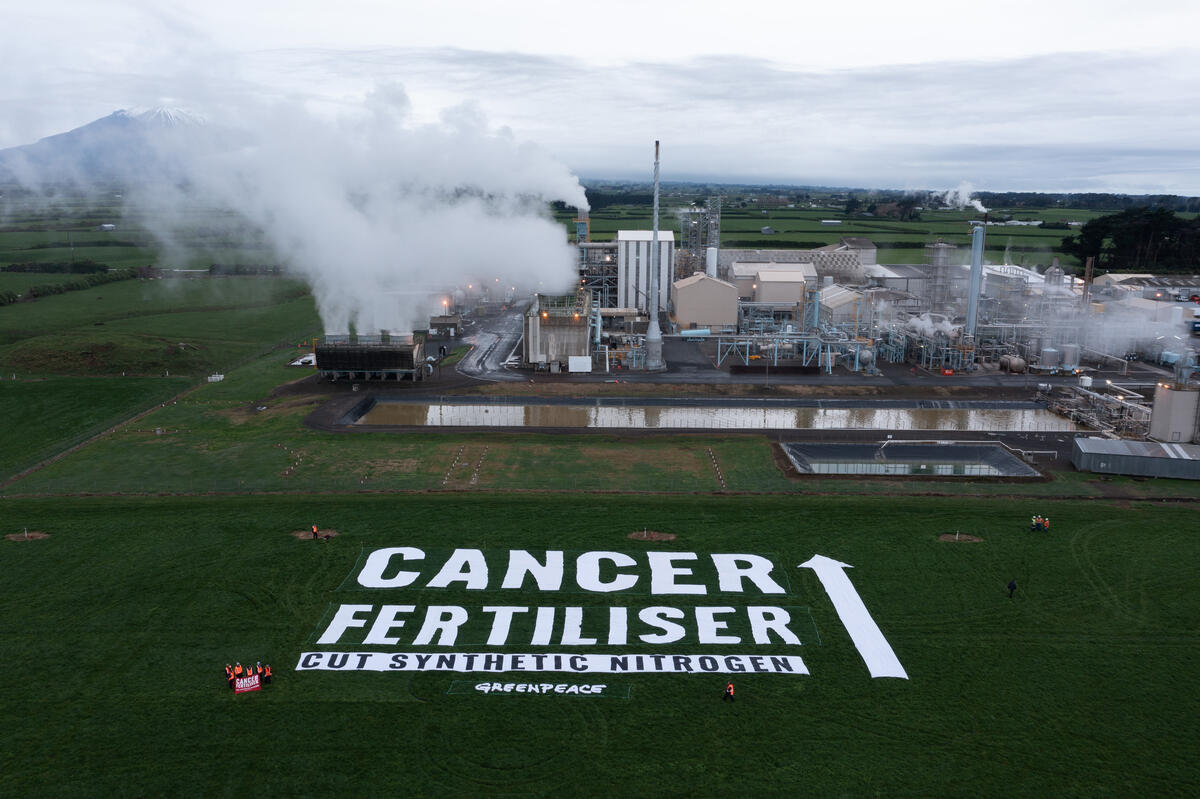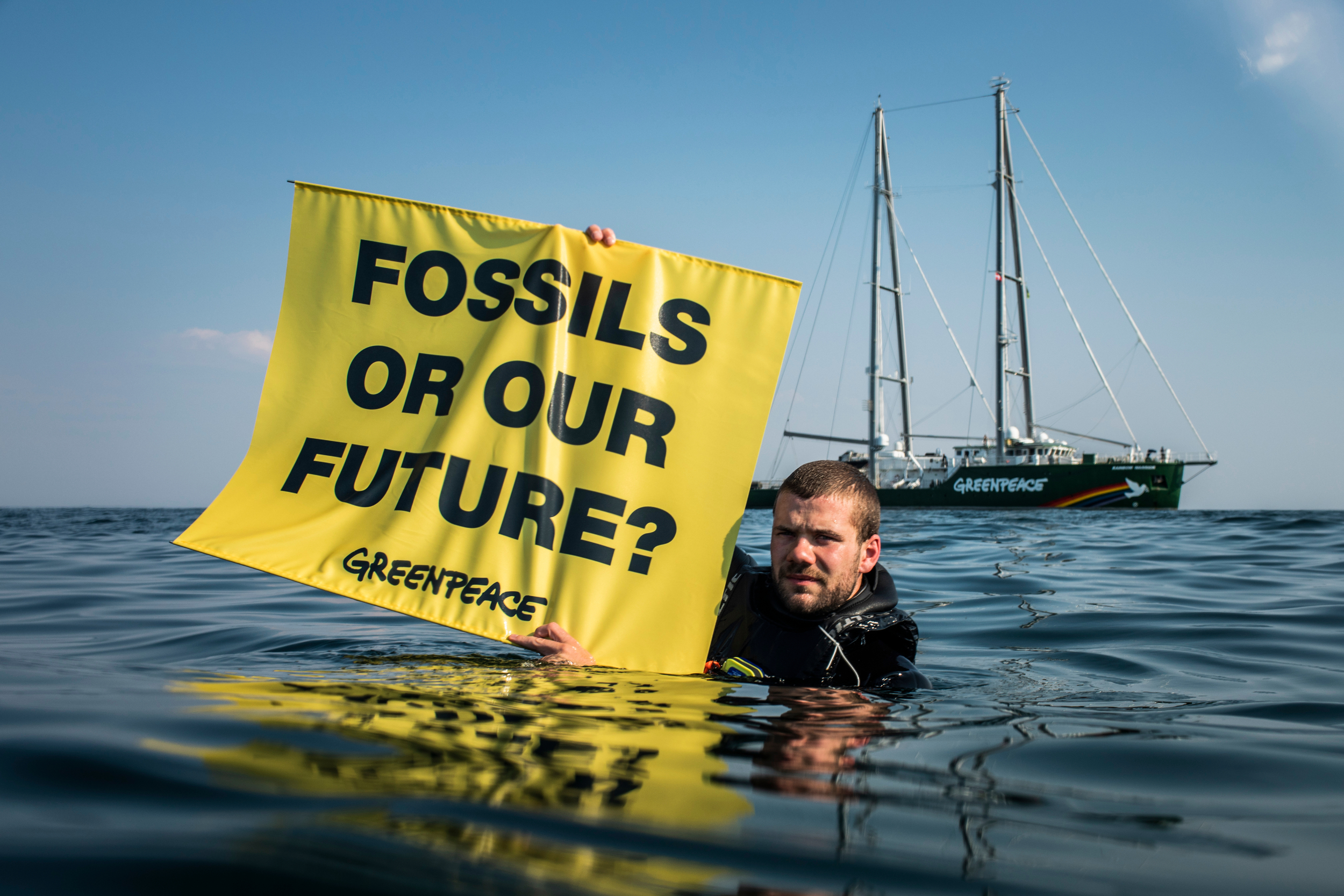Climate change has been in the news a lot lately. And so it should be. The Arctic and Antarctic oceans are warmer, with less ice, than ever before. Smoke from forest fires across North America turned cities’ air red. Heatwaves scorch already parched countries, and rivers run dry. Routes like the Rhine are becoming useless for shipping because there’s so little water left.
In Aotearoa, public attention may have moved on, but communities hit hard by Cyclone Gabrielle and this summer’s flooding are still dealing with the lasting impacts of the climate crisis. Communities like my neighbouring village of Muriwai, or those in Tairāwhiti flooded repeatedly, still have hundreds of families locked out of homes – because these homes have been made uninhabitable by recent landslides and flooding, made much worse by climate change.
So what are political parties doing about it? Rearranging deck chairs on the Titanic.
Big Dairy is New Zealand’s worst climate polluter.
But the dairy industry – in fact, the entire agriculture sector – is currently exempt from the Emissions Trading Scheme.
Last year, the Labour Government promised the agriculture sector – which makes up around half of the country’s greenhouse gas emissions – the lowest possible price on emissions, in response to the industry’s He Waka Eke Noa emissions management proposal.
The National Party has gone several steps further. National rejects He Waka Eke Noa and agriculture emissions pricing altogether. It seeks to kick the milk can down the road for another five years, and to bring in pie-in-the-sky genetic engineering and modification technofix ‘silver bullets’ in an attempt to allow the dairy industry to continue polluting the climate for as long as possible. This policy will put the climate, fresh water and people’s health at further risk.
The industry proposal He Waka Eke Noa was never really going to deliver the necessary emissions reductions from the super-polluting dairy industry. Expected emissions reductions were only around 1%. And while the industry and National have blamed Labour for undermining the proposal, in fact, it’s the industry that has thrown its toys out of the cot. The deal was never developed in good faith, despite the Government bending over backwards to meet the industry demands. It was just another example of predatory delay.
Urgent climate action won’t happen through the Emissions Trading Scheme.
The Emissions Trading Scheme is supposed to price pollution so that there are economic incentives for polluters to reduce emissions. But that cannot be effective when Aotearoa’s biggest climate polluter, agriculture, is exempt altogether, and the He Waka Eke Noa scheme is a dead duck. Even the ETS itself is in disarray. In December, the Government signalled it would not accept the Climate Change Commission’s expert advice and raise the price of emissions units to send the right signals to polluters that polluting is expensive. That tanked the market, and in the two emissions units auctions since, there have been no bids. There are too many pollution units in the market already, and it’s cheaper to plant pine trees than it is to stop polluting. Using market tools to solve market failure is like making the same mistake twice.
Changes to free emissions units, being considered before Parliament at the moment, look to give Fonterra even more rebates to continue to pollute. The Government, through the Ministry for the Environment, has just finished public consultation on emissions units, and just announced a review of exotic pine forestry settings under the ETS. The Climate Commission has also just finished consulting on the draft second Emissions Reduction Plan. But these are mere drops in the bucket if we do not drive real emissions reductions. And that means emissions reductions from our most polluting industry first: the intensive dairy industry.
The issue is that this is an industry that has the Government exactly where they want them. While everyday people and organisations get drawn into overwhelming Governmental consultation processes, the agri-industry has direct access to politicians, and they’re pushing for the ability to continue polluting for as long as possible.
Fonterra has come out saying it wants a public subsidy similar to that given to NZ Steel (actually Australian owned), to decarbonise its process heat. Fonterra is NZ’s second biggest user of coal, after Huntly power station. That coal is used to dry its huge volumes of milk powder, which is sent overseas mostly to become confectionary. It’s good that Fonterra sees the writing on the wall – and that its customers, like Nestlé, want better environmental performance from its suppliers. But since Fonterra reported half a billion dollars in profit at its quarterly results day in March, you’d think it should pay for decarbonisation itself.
Ultimately, switching from coal to renewable energy doesn’t solve the real problem of too much synthetic nitrogen fertiliser and too many cows, the country’s worst climate polluters of superheating gases methane and nitrous oxide. Government regulation of those fundamental causes of greenhouse gas emissions is what’s required if anyone is serious about climate change.
Through its agents in Federated Farmers and DairyNZ the dairy industry is railing against emissions pricing – either within or outside the ETS – even at the low rate of 1% from 2025. It’s clear there’s no real intent to address emissions and climate change, even though farming is among the worst and first affected. The industry anger is more hot air and much ado about nothing.
Urgent climate action means stopping New Zealand’s biggest polluters from causing devastating climate change.
This month Greenpeace, Oxfam and Forest and Bird, with more than 40 other allies, launched Climate Shift. We’re calling for real emissions reductions in transport, energy and agriculture. The way for real emissions reductions in industrial farming is to reduce the dairy herd and phase out synthetic nitrogen fertiliser. These are significant climate polluters in their own right, as well as polluting rivers and contaminating rural people’s drinking water. The Climate Shift coalition is also calling for support for front-line communities and action to restore and rewild nature. We need your help to make this a climate election – join our call for urgent action, and add your name below.
The industry won’t cut its emissions on its own. It’s up to us to demand action and create the change we need to see. We need strong Government action, real action, and for this year’s election to be a climate election. All of our futures depend on it.




